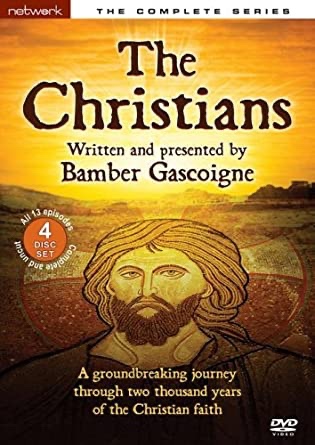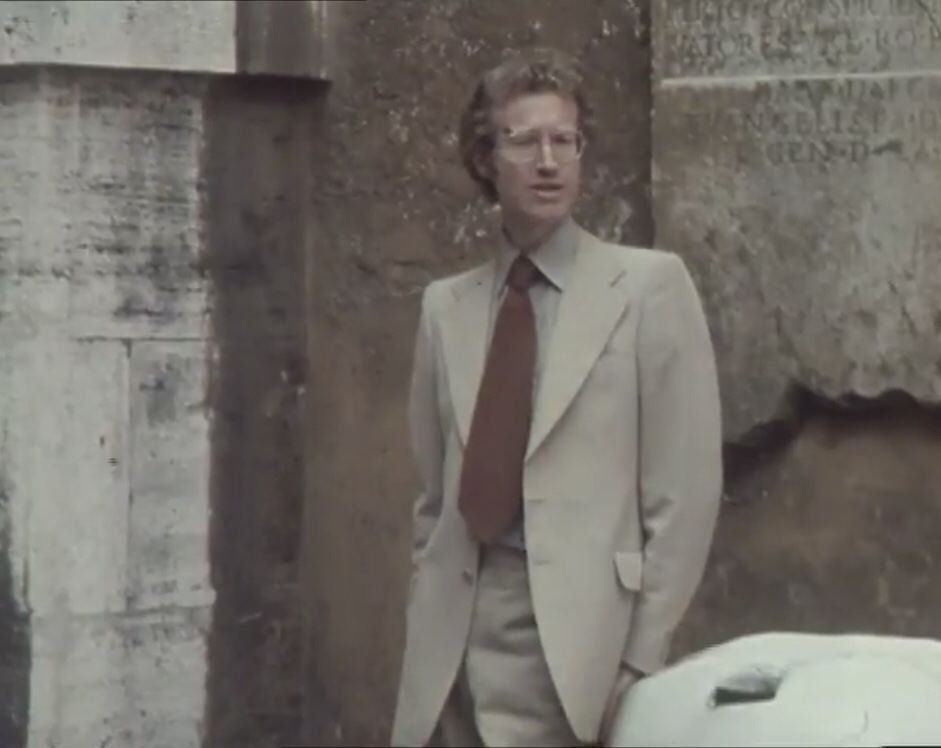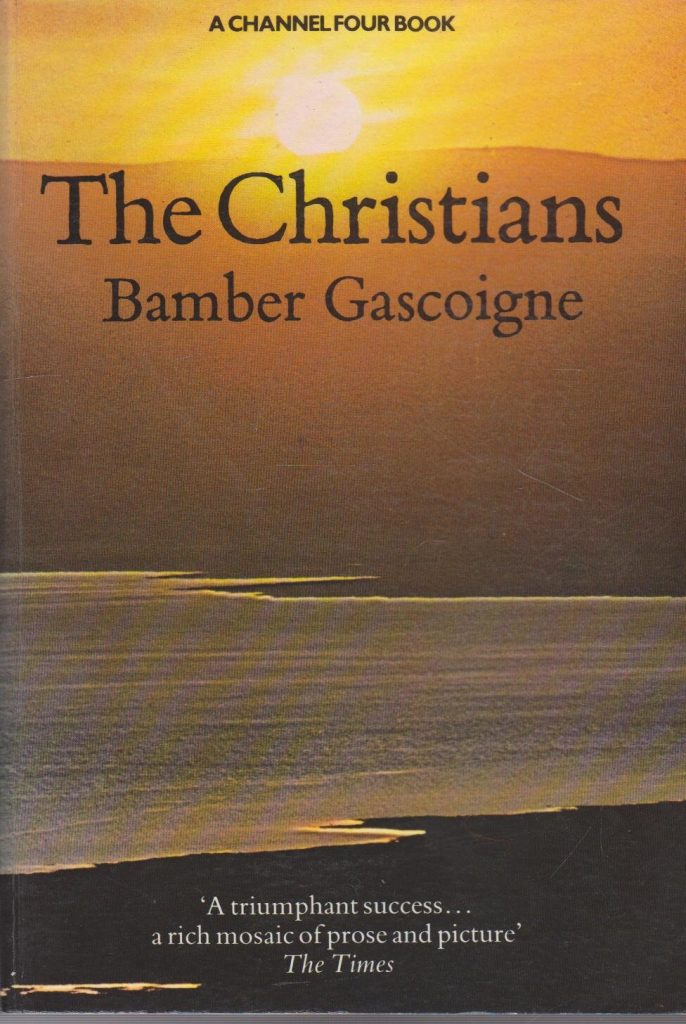

Hugely fascinating, from the days when even commercial channels might occasionally make a great documentary series.
First reviewed for Amazon UK, 2013.
Bamber’s sledgehammer, made for Granada, is modelled on such BBC classics as Civilisation, from the globe-trotting location filming and portentous music, right down to the 13 episode format. I have to say that the scope and scale of this series was what I’d hoped for from Diarmaid MacCulloch’s A History Of Christianity, but that (unlike his enormous book) was way too short.
This opulent and detailed extravaganza finds Bamber Gascoigne in full ’70s fig, in flares, sporting jackets with improbably wide collars, regaling us with his distinctive and almost sardonic delivery. It’s not quite as well done as Civilisation, and if you’ve seen K Clark’s fabulous series you’ll note that BG visits many of the places Clark had shown us almost a decade earlier, but it is nonetheless very good. Made for a commercial channel, each episode is slightly shorter than a BBC equivalent, in order to accommodate the ads. The DVDs preserve the 1/2 episode break titles, and even the end of episode ‘next week we’ll be…’ notices.
As BG points out in his intro, this is the story of The Christians, i.e. the people who have called themselves Christian throughout history, and therefore most definitely not an examination of theology as such. And as Bamber himself observes, what a diverse bunch they’ve proven to be! As a group they’ve evolved from the obscurity of an outsider cult, a ‘peculiar people’ suspected of cannibalism, to the official religion of the Roman Empire, and beyond.

As presented here these great ‘saltation’ moments – Constantine’s adoption of Christianity, and the massive expansion of Catholicism into the New World, especially via Spain in South America – all of which are admirably covered within this four disc set, appear (and quite rightly so) more as contingent and political, i.e. what the venerable Edward Gibbon would term historical – rather than spiritual. Once more this echoes Clark’s manner of dealing with the church in Civilisation, as ‘Ekklesia’, i.e. as a cultural and political force, as opposed to engaging with ideas of theology, or any other aspect of the spiritual or supernatural.
The lifestyles of the Christians have included everything from the ascetic poverty of St Francis to the wealth and debauchery of the Popes. Their sites, rites and beliefs have sometimes been flexible, sometimes rigid, at one moment absorbing ancient pagan tribal customs, or co-opting their sites and symbols, at another evolving bizarrely complex and convoluted syntheses of classical thought and medieval theology; sometimes peacefully coexisting with other cultures and beliefs, at others committing atrocities to those with different beliefs (or even to their own kind, often over what might well appear to us seemingly obscure and arcane details of theology). All of this is addressed in numerous ways over the various episodes.
The proliferation of and diversity amongst Christians is something of a key note theme. As well as considering many vanished types, such as the pole-dwelling mystics known as Stylites, Bamber and his team show us all kinds of contemporary Christians. Some, like the island-dwelling Coptic monks in Ethiopia, lead lives that have barely changed in two millennia, whilst others – including Catholic and Protestant sects of bewildering diversity – enjoy varying degrees of familiarity and modernity. This proliferation, multiplication and diversification is certainly fascinating, as well as being pretty mind boggling!
Having observed in the final episode how resilient Christianity has proven to be, even in Communist Russia, Bamber sums up thus in his closing statement: ‘The variety of Christians in the world today are like a record of the complex evolution of their faith.’ Well, yes, Amen to that!
As several other reviewers elsewhere point out – I love the comment one particular reviewer (at Amazon UK) made, about it looking like the series was ‘filmed though a sock’! – the film quality has, in places, deteriorated markedly. This is obviously a shame, especially as this is a great series, and really merits a decent digital restoration. But even as it is (or at least as my edition is) it’s well worth seeing.

